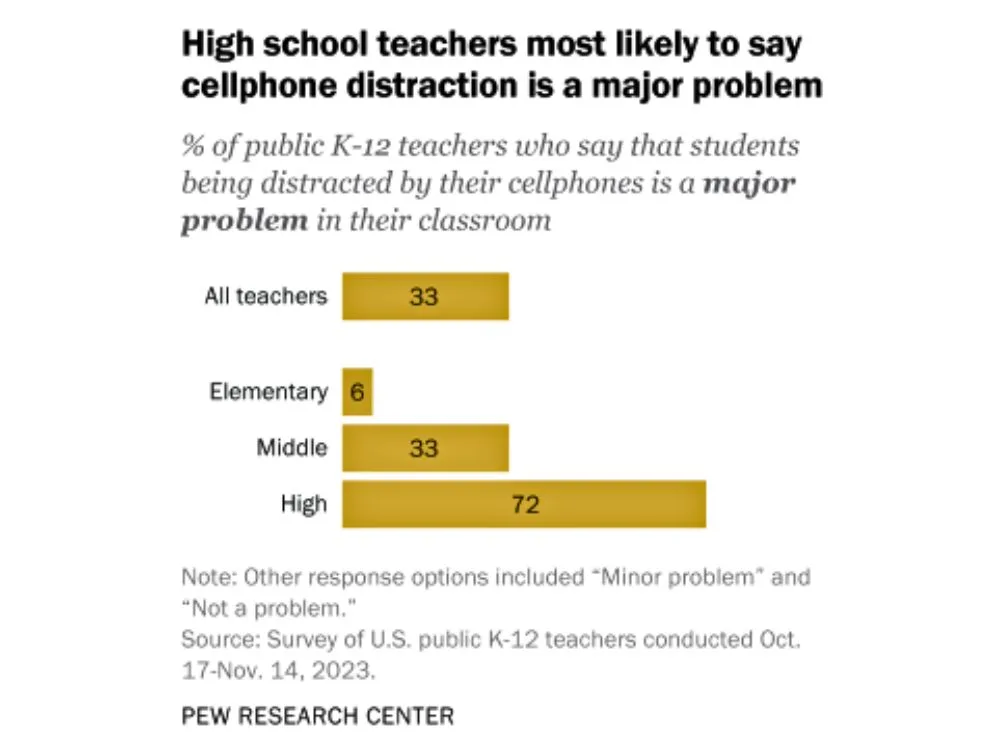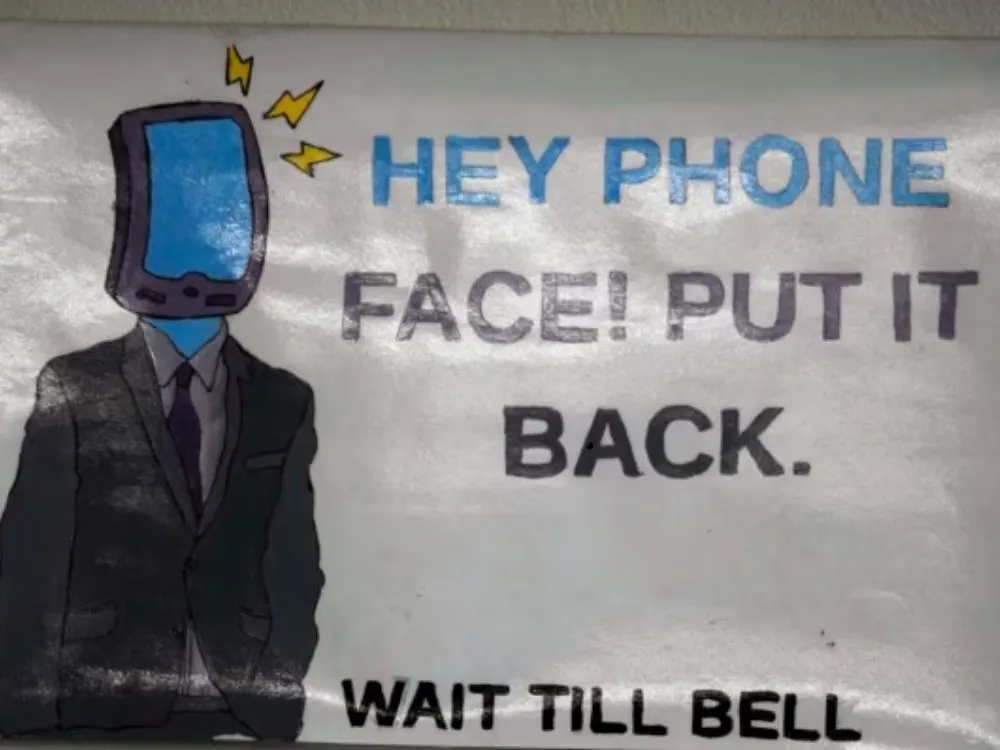The attention span of students is as low as it’s ever been. The addiction to phones is becoming very serious. Teachers have tried everything to combat the extreme issue of cell phones in the classroom. Consequences for having your phone out like losing points. Little cubbies or holders the phones must go into before class starts. Relentlessly calling home and complaining to admin. But none of it is working. In fact, many teachers are afraid to demand a student give them their phone for fear of being attacked.
The only thing that will work is a schoolwide ban with consequences that are actually followed through on. Policymakers are finally catching on to this enormous problem. Four states have instituted cellphone bans in schools, while lawmakers in at least eight states have considered passing similar legislation.
But what exactly does a cell phone ban mean?
Florida
Florida was the first state to adopt a statewide cellphone ban in 2023. The policy prohibits phones during instructional time. The principals have some discretion outside the classroom, meaning they can allow students to have phones out during lunch if they choose.
Indiana
The Senate in Indiana passed Enrolled Act 185, which bans “any portable wireless device.” The bill — which just took effect in July — requires districts, including charter schools, to adopt policies banning several types of devices during class time. Under the law, school districts will create policies banning devices during class time. That includes phones, tablets, laptops, gaming systems, and other devices that can communicate between two parties.
Each school district will decide exactly how to implement this policy. For example, students might be required to put their phones in locked pouches or designated places in the classroom. School boards will adopt these policies this summer.
Virginia
Just this month, Virginia became the latest in a growing number of U.S. states to restrict cell phone use in public schools. The state’s governor, Glenn Youngkin, issued an executive order to establish guidance and policies for local school systems to follow by the month of January.
The order said, “Studies indicate that students who use their phones during class learn less and achieve lower grades.” It also discussed an “alarming mental health crisis” among young people driven by the use of cell phones and social media.
Ohio
Governor Mike DeWine signed House Bill 250 in May 2024. The law requires every school district in Ohio to establish an official policy governing cell phone usage during school hours and aims to minimize student use of cell phones in K-12 schools.
“Our schoolchildren currently face countless distractions daily from the devices in their pockets,” said Governor DeWine. By limiting these distractions, we will re-establish the opportunity for students across Ohio to immerse themselves in their classwork, learn from their teachers, and create lifelong memories with their closest friends.”
HB 250 requires that all districts focus on limiting cell phone use and reducing cell phone-related distractions in classrooms. It also includes exceptions for students who require a cell phone to monitor a health concern or for student learning, as determined by school officials.
Oklahoma, Vermont, Kansas, New York
Oklahoma, Vermont, and Kansas have also recently introduced “phone-free schools” legislation. New York Governor Kathy Hochul said she will push for legislation to ban cell phone use in the coming legislative session in 2025.
The Ultimate Distraction
In a recent public study, the Pew Research Center reported that 72 percent of U.S. high school teachers say cell phone distraction is a major problem in the classroom.
Teachers report less of a problem with younger students. About 33 percent of middle school teachers and six percent of elementary school teachers see cell phone use as problematic. However, there is no doubt that outside use of technology has affected the attention span and ability to emotionally regulate for students of all ages.

Netflix, Gambling, Shopping, and More
The Associated Press (AP) reported that a California teacher complained of students watching Netflix during class. In Maryland, a teacher said students used gambling apps to place bets during the school day.
Many educators say students use social media, listen to music, and shop online during the school day. James Granger, a science teacher at a Los Angeles-area high school, told the AP, “Students used to have an understanding that you aren’t supposed to be on your phone in class. Those days are gone. The only solution that works is to physically remove the cellphone from the student.”
Yet we have all heard of students becoming belligerent and even violent when the teacher tries to remove their phone.
Hard to Enforce
Many schools have tried to address the problem of cell phones by implementing cellphone policies, such as requiring students to turn off their phones during class or give them to administrators during the school day.
Overall, 82% of K-12 teachers in the U.S. say their school or district has a cellphone policy of some kind. Middle school teachers (94%) are especially likely to say this, followed by elementary (84%) and high school (71%) teachers. Yet many teachers say these policies are hard to enforce.
High school teachers are more likely than their peers to report that enforcing these policies is difficult.” Six in ten high school teachers in places with a cellphone policy say this, compared with 30% of middle school teachers and 12% of elementary school teachers.”

Many Teens Don’t Agree
It is hard to enforce a policy without parental support. Most teens say smartphones have benefits that outweigh the harms for people their age. According to the Pew Research Center, seven in ten teens ages 13 to 17 say there are “generally more benefits than harms to people their age using smartphones,” while three in ten say the opposite.
And 45% of teens say smartphones make it easier for people their age to do well in school, compared with 23% who say they make it harder. Another 30% say smartphones don’t affect teens’ success in school.

Parents Won’t Give In
Though parents might understand how detrimental phones can be in school, they aren’t willing to give up direct communication with their children. Given the amount of school shootings and other concerning incidents that occur across the country, parents feel the need to be able to speak directly to their kids in this kind of situation.
Other parents just don’t care how much phones in the class cause a distraction, as some call and text their children during class.
Many teachers, including me, cite phones as a major reason they left the profession. The addiction to technology is too much for one teacher to combat, yet we get blamed when kids aren’t learning what they should be or earning a high enough grade. Until the entire administration gets extremely strict and parents understand how much of a problem phones are, the problem will only worsen.

To read an emotional response I had to phones one day after class, see here.

